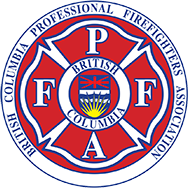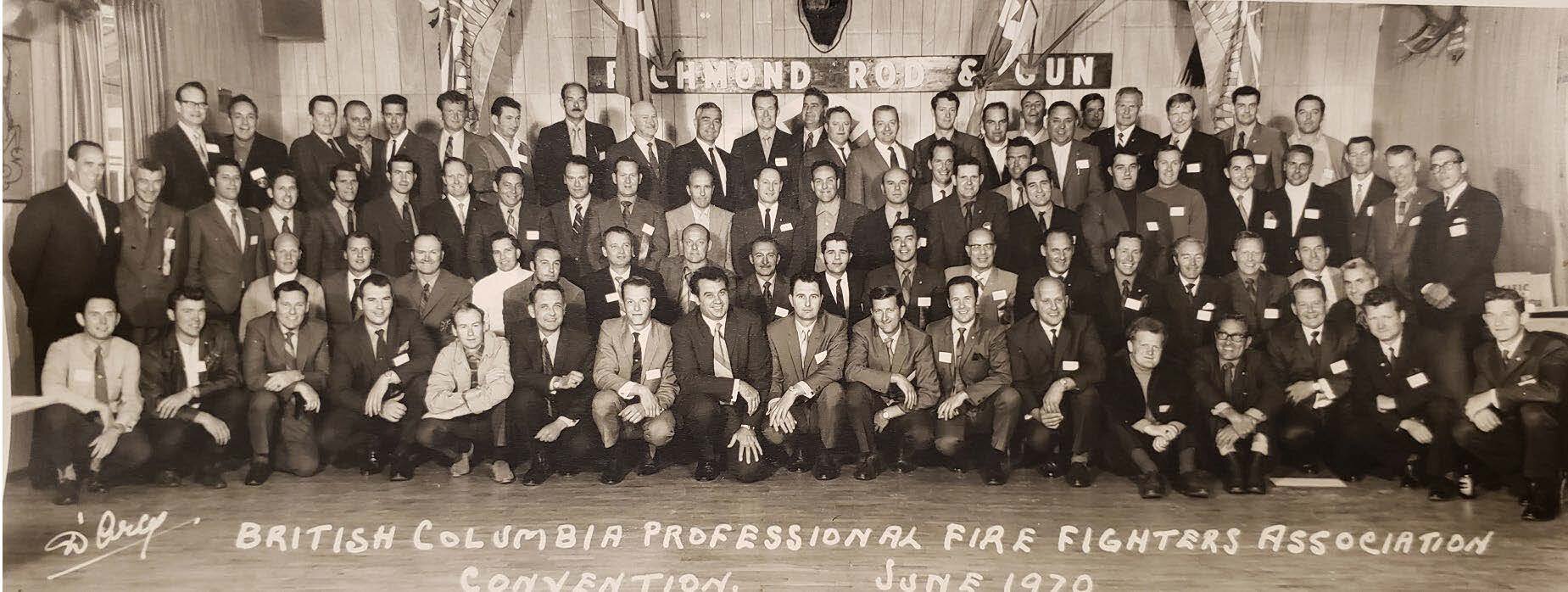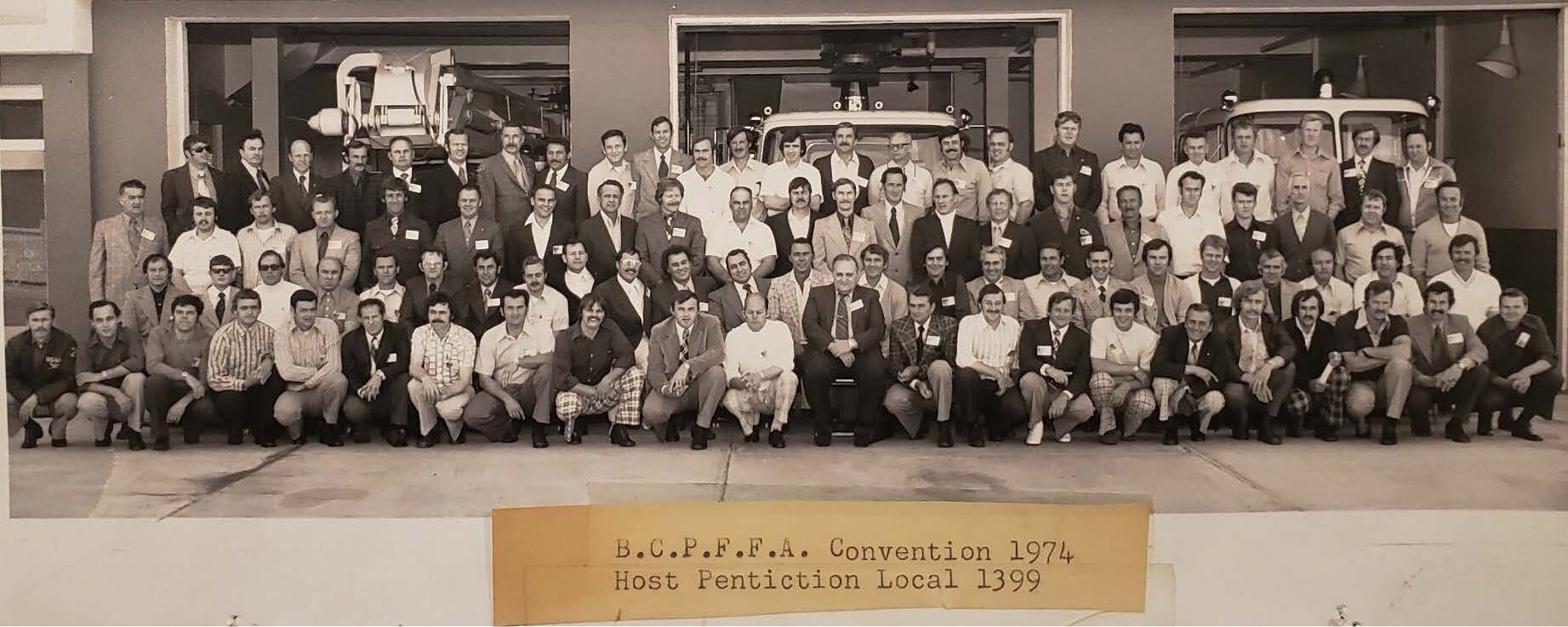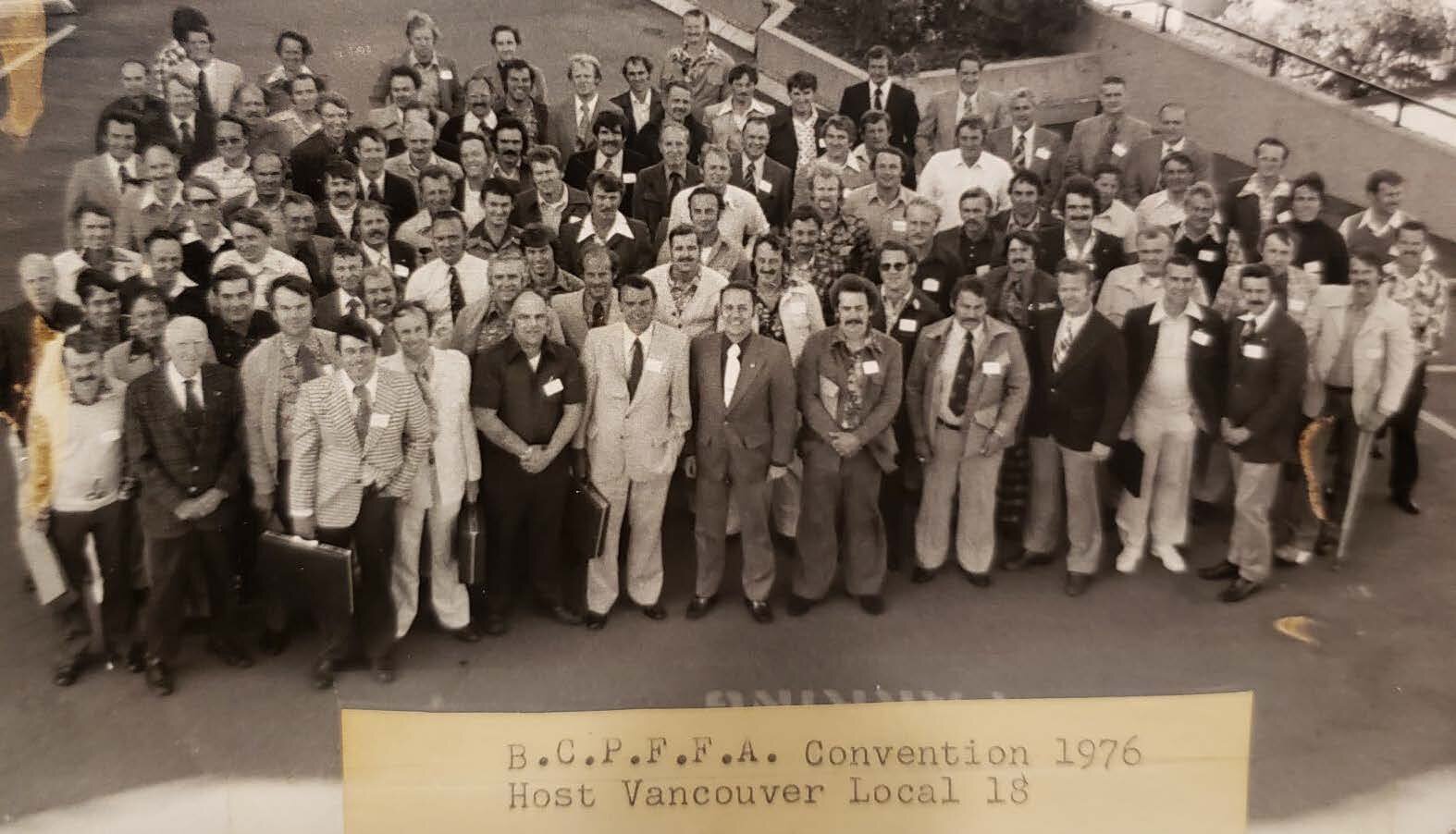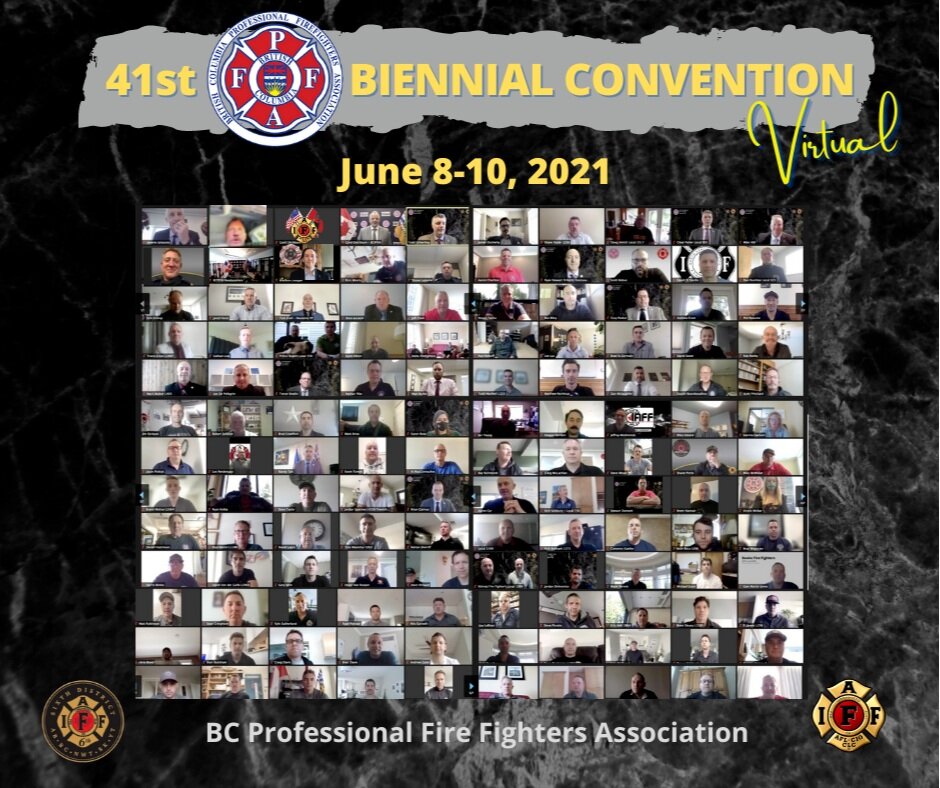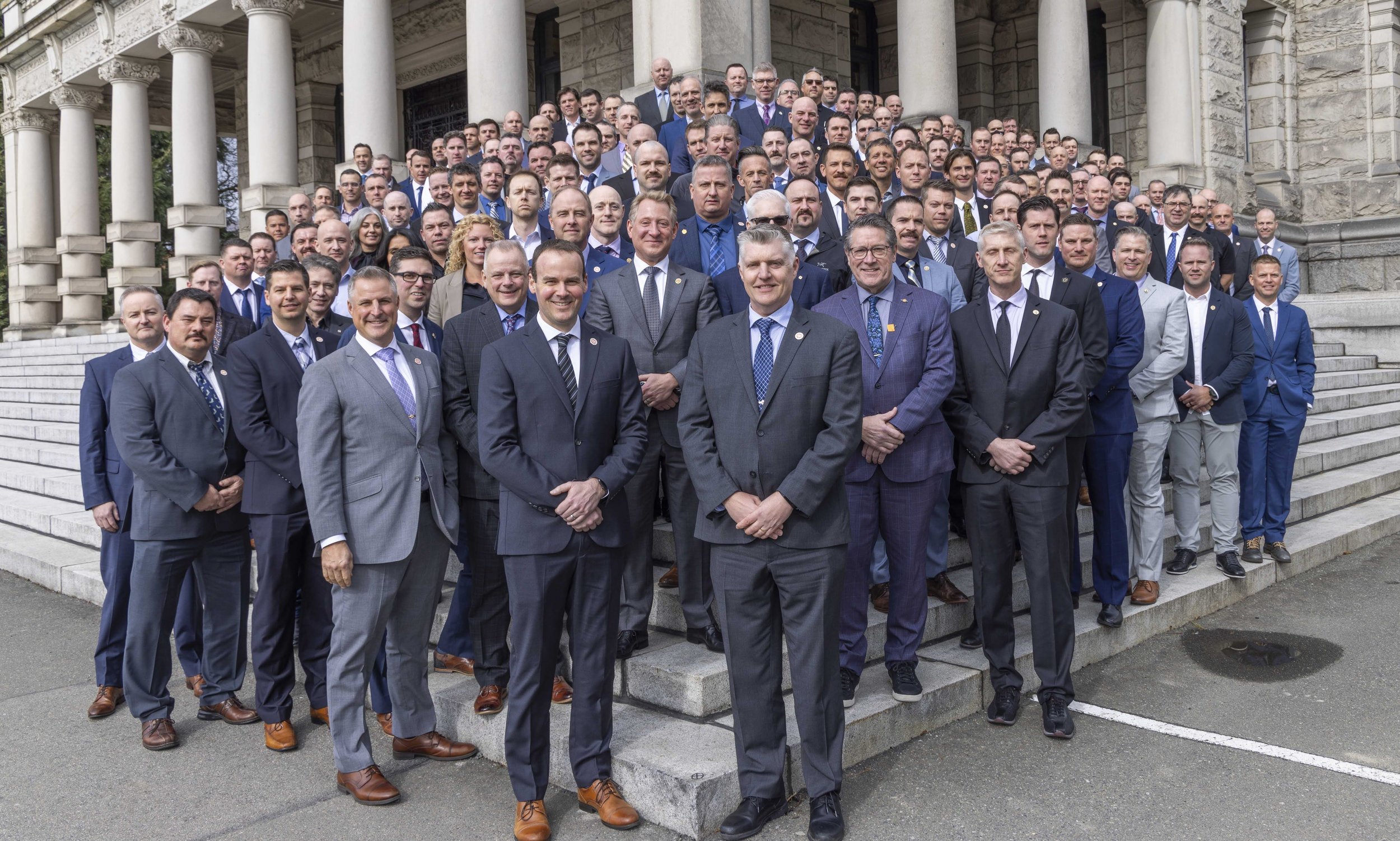History of Fire Fighter Unions in BC
History of Fire Fighter Unions in BC
A decade after the International Association of Fire Fighters (IAFF) was formed in 1918, the British Columbia Professional Fire Fighters’ Association (BCPFFA) was organized as a provincial affiliate in 1929. At that time, four affiliates were part of the BCPFFA;
Vancouver L18 (1918);
Victoria L258 (1923), L730 (1942);
New Westminster Local 256 (1923),
North Vancouver City L296 (1929)
The BC Professional Fire Fighters Association (BCPFFA) and is now comprised of 8 regions overseeing 56 locals who represent over 4,800 professional men and women fire fighters, dispatchers, prevention officers and support members in BC, including the Yukon.
An additional source for this document is the extensive documentation provided by Alex Matches, now retired from the Vancouver Fire Rescue Service. Alex has written three books on the Department and has continued to provide advice for this document as it relates to the union activities; he has also graciously allowed me to quote extensively from his work. There are also a considerable number of individuals who have provided background, recollections, research, editing and writing. This includes Gord Ditchburn, President of the BCPFFA, Rob Weeks and Craig Lanthier from Local 18, retired union officers including Terry Erskine, Lorne West, Ed Pakos and Terry Ritchie as well as Linda Kennedy from Local 18 and Mary Mitchell who has provided a great deal of research from various university archives and online media sources. BC Locals have also provided updates in terms of their local history and their serving officers.
MAJOR HIGHLIGHTS OVER THE LAST CENTURY
1944 - We saw an amendment to the Fire Departments Hours of Labour Act set a maximum number of hours (48 hrs/week from 60 hrs) to be worked in a week as after the conclusion of WW 2.
1948 - The Municipal Act was amended to ensure that conciliation (arbitration) awards in relation to wages, working conditions, were binding for both Police and Fire.
1950 - Local 18 arbitrated their collective agreement that included the issue of pensions, specifically an argument for a supplemental pension related to their requirement to retire at the age of 60. The Board agreed that additional pension protection was warranted as follows and that “additional superannuation for Firemen was in the public interest, and due to earlier retirement....”
1978 - BC fire fighters in addition to raising funds for Muscular Dystrophy, established the BC Professional Fire Fighters’ Burn Fund. The Burn Fund was founded by Coquitlam Captain Alex Blake and Dr. Charles Snelling of the Vancouver General Hospital. The Burn Fund was established to further develop research in the area of burn care and healing.
1987 - The Corporation shall contribute 2.50% on the basic regular Earnings to be an additional contribution to Municipal Superannuation and the employee will contribute 2% of his basic regular earnings.
1997 - In 1997 the Burn Fund committed $1 Million to relocate and establish a new Burn Unit at VGH named the British Columbia Professional Fire Fighters’ Burn and Plastic Surgery Unit.
2005 - The first reading of the Worker's Compensation Amendment Act, that recognized 7 cancers as occupational diseases for fire fighters {Brain, Bladder, Colorectal, Kidney, Ureter, Primary non-Hodgkin's Lymphoma, and primary leukaemia, Testicular}. Since then, the following have been added as presumptive illnesses/diseases:
2008 Lung cancer;
2011 Esophageal cancer;
2014 Heart Disease;
2017 Breast, Prostate, Myeloma;
2018 Occupational Stress Injuries;
2022 Cervical, Ovarian, Penile, Pancreatic, Thyroid and reductions in accumulative periods in Testicular, Colorectal, Esophageal
View Regulation here: Fire Fighters Occupational Disease Regulation and First responders post-traumatic stress disorder presumption
2010 - The BCPFFA negotiated a transition within the Municipal Pension Plan to Group 5, an accrual rate of 2.33% is based on your best 5 years, an improvement where a full 70% pension is achievable before age 60. The BCPFFA become the plan sponsor of the Supplemental Pension Pay Allowance (SPPA) to assist with post employment Extended Health Benefits Premiums that members can access upon retirement.
2016 - The $13M Burn Fund Centre Grand Opening. The centre housed 8 HomeAway Accommodation Suites and several offices. Since 2002, the project came to fruition with support from the City of Vancouver who provided land for Centre, and with funding from:
BC Housing & BC Ministry of Health: $4M Investment;
Jack & Darlene Poole Foundation: $2.5M Donation;
Fire Fighter Locals: $1.3M pledged and delivered;
Concert Properties: $750,000 in donated services
Celebration 100 years at the IAFF Centennial Convention August 6-10, 2018
2020 COVID-19 Pandemic: Presented a range of new challenges for members of the IAFF in British Columbia related to Covid-19. The challenges included new workplace rules to protect members and the public. These changes also negatively affected the number of pre-hospital care incidents that fire services responded to.
2020 Provincial Election: The provincial election in November saw (first IAFF member ever) the election of Mike Starchuk to the BC Legislature. Mike a former member of Surrey Local 1271 is the first firefighter ever elected as an MLA; he had previously served on the Local executive and then on Surrey Council
2021 EMS and Natural Disasters
Scope of Practice Changes - On December 3, 2021 the BC Ministry of Health Adrian Dix announced that the province is expanding the care fire fighters and paramedics can provide to British Columbians in emergency situations.
Heat Dome - In July 2021, the province experienced a ‘heat dome’ weather event that negatively impacted our emergency medical system with service volume that could not be met, and sadly over 700 citizens succumbed to heat-related causes of death.
Devastating floods with communities cut off from outside help, the ability to offer an improved level of care for those in need clearly demonstrates the need for these changes.
Recommendations: BCPFFA executive board and EMS committee presented twenty six comprehensive recommendations to the Emergency Medical Assistants Licensing Board (EMALB). These recommendations not only address the First Responder (FR) level but that of the Emergency Medical Responder (EMR) level, and were offered in a manner that addresses both the rural and metro settings that the pre-hospital care system serves. In total, 46 changes were made with all stakeholders involved.
2022 - Improvements to Group 5 Pension: Effective January 1, 2022, The Plan Partners (Police and Fire) supported by the Board of Trustees moved to
Move to a flat lifetime pension accrual rate of 2.12;
Moved from Highest average salary of five (5) years to four (4) years;
Added Pension option: A 10-year guaranteed life pension
2022 Provincial Legislation: Through the BCPFFA lobbies, the provincial government added Cervical, Ovarian, Penile, Pancreatic, Thyroid and reductions in accumulative periods in Testicular, Colorectal, Esophageal.
2022: Bill 41: Amendments to the Workers Compensation Act: The B.C. government announced Bill 41, introducing seven amendments to the Workers Compensation Act. Three amendments took effect on November 24, 2022 (Indexation of benefits Compensation for non-traumatic hearing loss, Claim suppression), and the remaining four amendments are taking effect in 2023 and 2024 (Independent medical examinations, Interest on delayed benefit payments, Fair practices commissioner, Duty to cooperate and duty to maintain employment).
2024 Legislative Conference. On March 4th, 2024, the Ministry of Mental Health & Addictions announced funding for an Occupational Awareness Training backed by the BCPFFA in collaboration with the BC Municipal Safety Association, Fire Chief’s Association of BC, Volunteer Association of BC, BC Training Fire Officer Association, and added BC Wildfire Service to the program. Learn more
